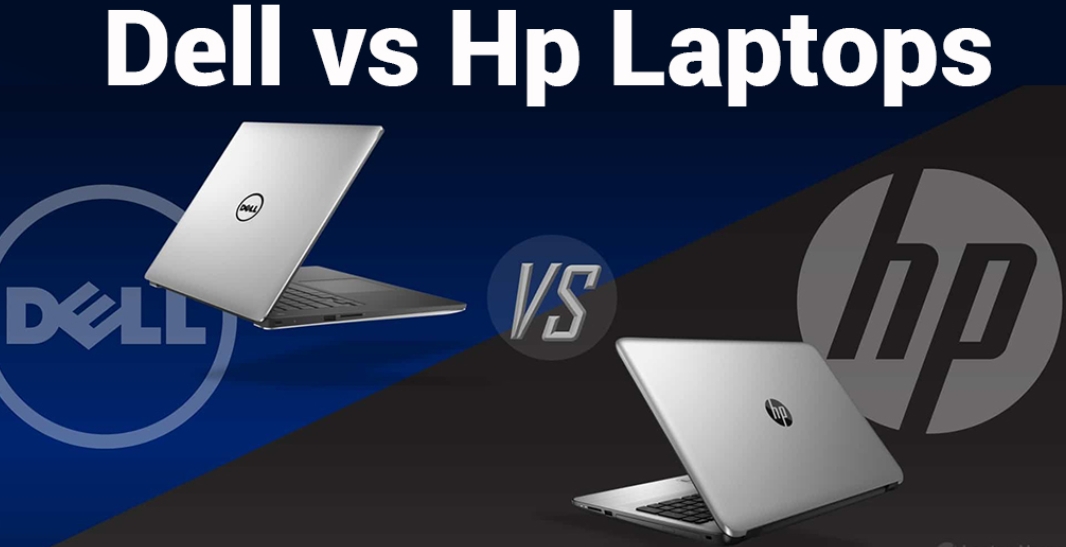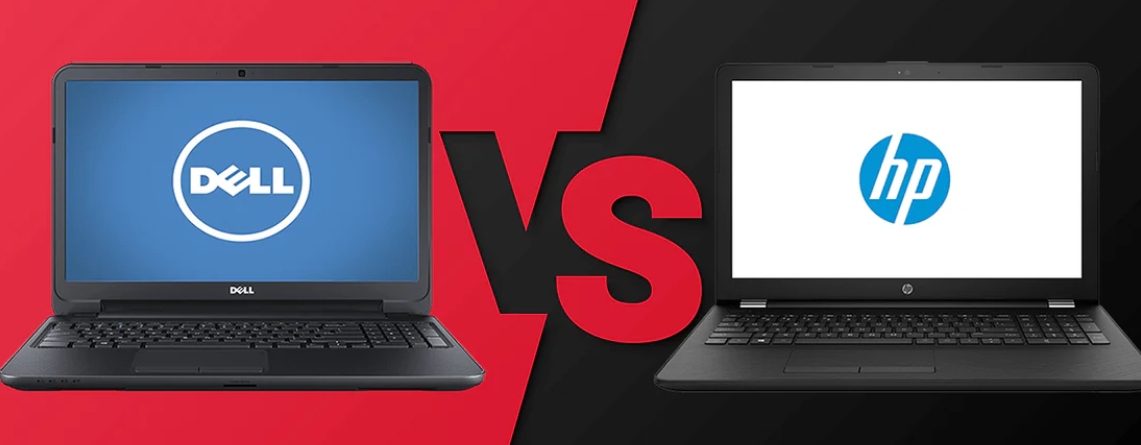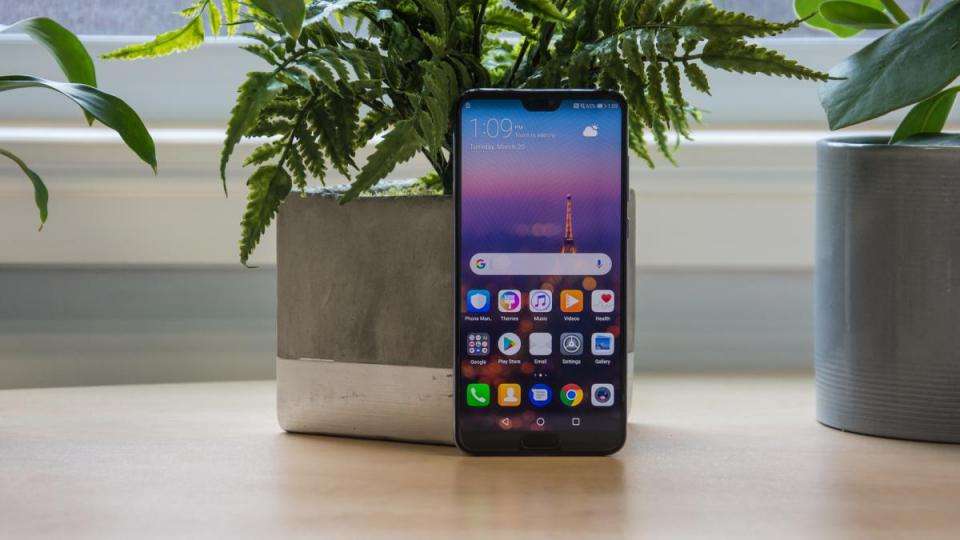Choosing a laptop often boils down to a battle between trusted brands. HP and Dell stand out as two of the most renowned names in the market. Each brand offers numerous models tailored for different user needs, from gaming and creative work to business and everyday use. This blog will provide a detailed comparison of HP and Dell laptops to answer the question of which laptop is better: HP or Dell. We will examine their history, performance, design, support services, and more. By the end, you’ll have a clearer picture to help you make an informed decision based on your unique requirements.

Brand Overview
History and Reputation of HP
HP, short for Hewlett-Packard, was founded in 1939 by Bill Hewlett and Dave Packard in a small garage in Palo Alto, California. This iconic brand has been a pioneer in the technology industry for decades. Known for its innovation, HP introduced the first personal computer in 1968. Over the years, the company has built a solid reputation for delivering high-quality and reliable products. HP’s laptop range covers everything from high-performance gaming rigs to affordable everyday machines. Their focus on sustainability and innovation keeps them at the forefront of technology. HP’s strong emphasis on customer satisfaction and continuous improvement has earned it a loyal user base.
History and Reputation of Dell
Dell was founded by Michael Dell in 1984 with the goal of providing custom-built computers directly to consumers. The company’s direct-to-consumer sales model allowed for lower prices and high customization, quickly gaining popularity. Dell’s commitment to quality and customer-centric approach has cemented its reputation as a reliable brand. Today, Dell laptops are known for their performance and innovative designs. The brand’s product range, from the budget-friendly Inspiron series to the high-performance XPS lineup, caters to diverse user needs. Dell continues to focus on delivering top-notch technology, making it a formidable player in the laptop market.
Performance and Hardware
Processor Options and Capabilities
When it comes to processing power, both HP and Dell offer a variety of options to cater to different user requirements. HP laptops are available with Intel and AMD processors, ranging from entry-level to high-performance models. Intel’s Core i3, i5, i7, and i9 processors, as well as AMD’s Ryzen series, provide ample choices for users depending on their needs. Dell also provides a wide range of processors, with a similar selection of Intel and AMD options. Gamers, content creators, and business professionals can find suitable configurations within both brands. However, Dell is often praised for its slight edge in offering premium high-end processor configurations, particularly in its XPS series.
Graphics and Display Quality
Graphics and display quality are critical factors for those involved in graphic design, video editing, or gaming. HP laptops come with integrated graphics for everyday tasks and robust dedicated graphics solutions like NVIDIA GeForce and AMD Radeon for heavier graphics work. HP’s screens can go up to 4K resolution, providing crisp and vibrant visuals. Dell also offers powerful graphics options. Their Alienware series, for instance, is targeted at the gaming market with top-tier NVIDIA and AMD graphic cards. Dell’s InfinityEdge display technology in XPS models delivers exceptional display quality with near-borderless screens. Both brands provide exceptional options, but Dell’s focus on advanced display tech gives it a slight advantage.
Memory and Storage Solutions
Regarding memory and storage, HP and Dell offer comprehensive solutions to suit different user requirements. HP laptops typically come with upgradable RAM options ranging from 4GB to 64GB, ensuring smooth multitasking capabilities. The storage options include SSDs, HDDs, and hybrid solutions, ranging from 256GB to 2TB. Similarly, Dell provides extensive memory configurations across its models, allowing users to upgrade RAM based on their needs. Storage solutions include high-speed SSDs, traditional HDDs, and combinations of both. Dell often integrates faster NVMe SSDs, providing quicker data access speeds. Thus, whether it’s for storage capacity or speed, both brands offer excellent choices with Dell slightly ahead due to its advanced storage integrations.
Design and Build Quality
Aesthetic Appeal and Material Quality
The design and build quality of a laptop significantly influence purchasing decisions. HP laptops exhibit a clean and professional look, with many models featuring sleek aluminum or metal finishes. The Spectre and Envy series are particularly appreciated for their premium aesthetics and build quality. Dell’s XPS series is a standout for its striking design, featuring a minimalist look with high-quality materials like CNC-machined aluminum and carbon fiber. The focus on durability and a professional aesthetic is evident. While both brands offer visually appealing laptops, Dell’s emphasis on premium materials and sleek design in its high-end models often wins the design battle.

Durability and Portability Considerations
Durability and portability are key when selecting a laptop, particularly for professionals on the go. HP’s laptops are known for their robust build quality, designed to withstand the rigors of daily use. The EliteBook series, aimed at business users, is particularly durable. HP also offers lightweight models for enhanced portability. Dell also prioritizes durability, with models undergoing rigorous testing to ensure they can handle tough conditions. The Latitude series, designed for business, boasts impressive durability features. Dell’s XPS line takes the lead in portability due to its compact form factor and lightweight design, making it an excellent choice for users who prioritize mobility without compromising on power.
Customer Support and Warranty
Support Services Offered by HP
HP provides comprehensive customer support services for its laptop users. Their support includes online resources, live chat, and phone support. HP’s Support Assistant software pre-installed on their devices helps users troubleshoot common issues quickly. The company also offers a wide range of warranty options, including standard one-year warranty coverage with options to extend up to three years. Additionally, the Care Pack service plans offer further protection, including accidental damage protection and onsite repair services. HP’s commitment to customer satisfaction is evident in its robust support network, designed to provide users with the help they need when they need it.
Support Services Offered by Dell
Dell has built a strong reputation for its excellent customer support services. The company offers various support options, including a knowledgeable support team accessible via phone, chat, or even social media. Dell’s Premium Support and Premium Support Plus are highly regarded, offering 24/7 assistance, on-site service after remote diagnosis, and proactive issue detection. Warranty options are versatile, with standard one-year coverage and extensions available. Dell also offers accidental damage protection plans for added peace of mind. Users consistently rate Dell’s support services highly, thanks to the brand’s proactive approach and extensive support infrastructure.
Conclusion
In the HP versus Dell debate, the right choice depends on your specific needs. HP offers a broad range of models that cater to various user requirements, backed by strong build quality and robust support. Dell, on the other hand, excels in high-end configurations, design aesthetics, and customer support. Both brands have their strengths and can serve different purposes well. If you seek cutting-edge design and premium performance, Dell might be the way to go. For reliable, versatile laptops with strong support, HP is a great choice. Evaluating which laptop is better: HP or Dell for your priorities will help you make the best decision.
FAQ
Which brand offers better gaming laptops, HP or Dell?
Dell, particularly with its Alienware series, is renowned for gaming laptops. These models offer superior graphics, high refresh rates, and advanced cooling systems, often outperforming HP’s gaming offerings like the Omen series.
Are HP laptops more suitable for business use than Dell laptops?
Both brands offer excellent business laptops. HP’s EliteBook series and Dell’s Latitude series are both designed with business users in mind, providing robust security features, durability, and performance.
How do HP and Dell compare in terms of battery life?
Battery life can vary by model, but generally, Dell’s XPS and Latitude series tend to have longer-lasting batteries compared to HP’s counterparts, often due to more optimized power management features.






Leave a Reply